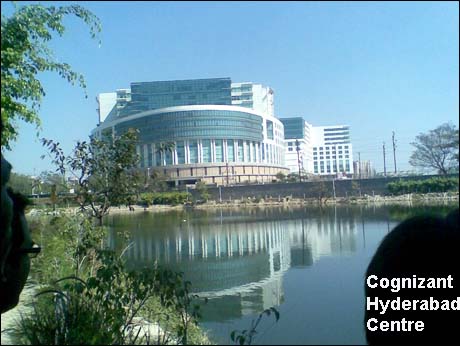
Commentary
For the fourth time in its 23-year history, this born-in-India global IT services company realigns its business, in the process, removing some 4000 engineers in this country and shedding some unpalatable areas of work.
This article was first published in Swarajya magazine on Novmber 4
By Anand Parthasarathy
Bangalore, November 6 2019: It is easy to forget that the DNA of IT services leader Cognizant is decidedly Indian. It started as an in- house tech arm run by what was then, Satyam computers for American business analytics company Dun&Bradstreet. In 1996, D&B spun it off as a separate entity, named Cognizant and its first CEO Kumar Mahadeva, relocated the company headquarters to the US to better scoop up the Y2K or Year 2000 software conversion work. This was low hanging fruit for Indian software companies at the turn of the century. Its next CEO, Lakshmi Narayanan refocused the company on a wider canvas of Business Process Outsourcing. His successor , Kenya-born Francisco D'Souza, during a long stint of 13 years from 2006, made Cognizant one of the world's fastest growing international companies in the last decade by shrewd diversifications into digitally driven business verticals.
Yet for all its global packaging, with headquarters in Teaneck, New Jersey (US), Cognizant has its centre of gravity in India, which is home to some 2 lakhs of its 3 lakh-strong workforce.
Which is why the impact of the latest restructuring exercise carried out by Cognizant's new CEO, Brian Humphries -- he took over from D'Souza, just 6 months ago -- will be felt most dramatically in India. There was no particular fiscal urgency for the current manpower cuts: Just a day before the CEO's email to employees about the job cuts, the company announced its latest quarterly results: a healthy net income of $ 497 million compared to $ 477 million in the same period a year ago and quarterly revenues of $ 4.25 billion, up 4.2 % from the same period last year.... not the type of numbers which would trigger off panicky belt tightening.
Content moderation
No, the stimulus lay in the nature of some of the work Cognizant did for a big ticket client: The company was among a handful of players worldwide, to whom Facebook had outsourced the task of content moderation: examining Facebook posts for disturbing or objectionable content: violent, racially provocative, sexually offensive. Cognizant teams doing this work were spread around the world -- in India, some of the work was said to be done in the Hyderabad centre. In his email to employees, Humphries put it diplomatically: .“We’ve determined that this subset of work is not in line with the company’s strategic vision." In point of fact this work, that Cognizant first took up in 2017 at its Phoenix, Arizona and Tampa, Florida centres in the US, has proved to be hugely traumatic for its employees. Articles in Verge magazine in February and June this year described the severe psychological toll that watching such nauseous content hour after hour, extracted from the employees, some of whom developed mental health problems and post traumatic stress symptoms. This was the dark underbelly of the global outsourced IT services business -- and Cognizant decided it was not worth the money it brought in.
Bariatric surgery
Having decided to shed this grey business, Humphries seems to have decided to make it part of a larger restructuring, slimming some of the fat in the middle order, much like health conscious people decide to shed the 'spare tyre' around their middles. But like someone in a hurry Humphries seemingly decided that a strict diet was not enough: bariatric surgery was needed. To quote from his email, he decided to "remove 10,000 - 12,000 mid to senior level associates from their current roles in coming quarters, (leading to) a net reduction of approximately 5000 - 7000 roles or about 2% of our population, as we will aim to reskill our associates."
Considering that about 70% of Cognizant's workforce is based in India, this may see the company laying 4000- 5000 staff in India before the end of the fiscal year.
Challenge of AI & robotics
Unsaid in all this, is the pressure currently being felt, by all IT companies in an environment where artificial intelligence and robotics is slowly nibbling at tasks hitherto performed by humans. Cognizant's manpower and salary structure, according to industry monitors, places it at a disadvantage when it competes with a TCS or an Infosys for IT services contracts. This may why recently announced job reductions are going hand in hand with caps on salary hikes, cloaked in euphemisms like "just-in-time promotions", " a more meritocratic culture" and "streamlining our operation mode", which in unvarnished words mean, no salary hikes, no increments, no promotions -- even for those who are lucky enough not to be the targets of "right sizing".
Make no mistake, the Cognizant cull is just the first -- among infotech services players -- and by no means the last. Large entities like Accenture, IBM and HP, as well as desi players like TCS, Infosys and Wipro, are just as vulnerable to the garam hava of AI and automation which threatens to bring machine intelligence to tasks hitherto performed by trained humans. On the principle, 'if you can' fight 'em, join 'em', all of these companies are investing heavily in precisely the technologies which threaten their bottom lines.
This may delay -- but may not prevent -- more players from shedding some of their manpower in the face of this technological onslaught. The only question is whether they will resort -- like Cognizant --to a surgical strike, or to less invasive, more humane methods.